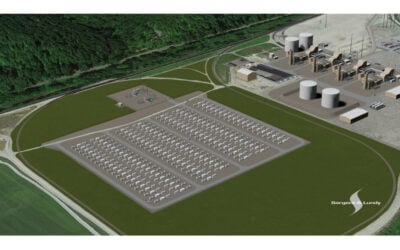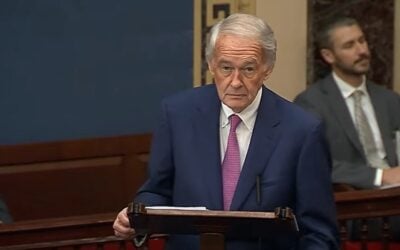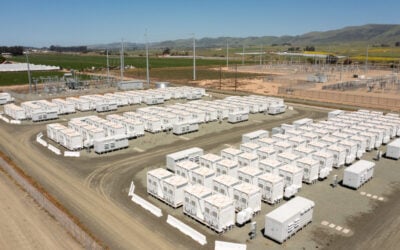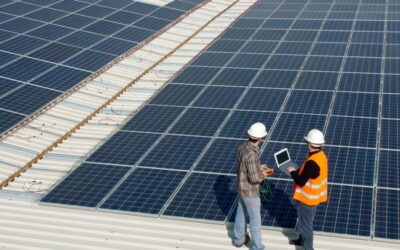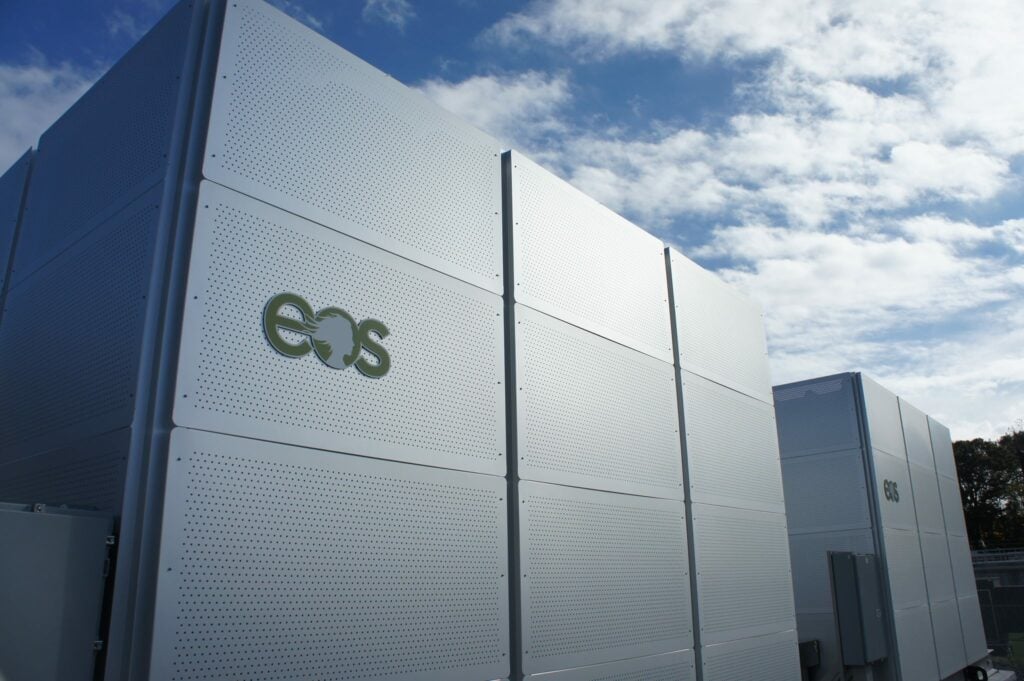
Zinc battery firm Eos Energy Enterprises has responded to a short seller note which saw its share price nearly halve on Thursday last week.
Eos sells a stackable long-duration energy storage system based on proprietary zinc hybrid cathode technology to system integrators and EPC (engineering, procurement and construction) firms and listed on the Nasdaq via a SPAC listing in late 2020.
Enjoy 12 months of exclusive analysis
- Regular insight and analysis of the industry’s biggest developments
- In-depth interviews with the industry’s leading figures
- Annual digital subscription to the PV Tech Power journal
- Discounts on Solar Media’s portfolio of events, in-person and virtual
It posted US$8.8 million in sales in Q1 2023, up 166% year-on-year, and expects significantly less in Q2 – US$0.2 million – due to transitioning its product from Gen 2.3 to its Z3. Significantly larger is its reported backlog of 2.2GWh or US$535 million worth of revenue.
The backlog has been called into question by Iceberg Research, a largely incognito research house which has a short position in Eos. It published a note last week (27 July) in which it said that the parent company of an Eos customer – EPC and developer BridgeLink Commodities, which accounts for 1GWh or around half of Eos’ backlog – had its energy assets foreclosed and auctioned off in May this year.
Eos Energy Enterprises’ share price fell by as much as 45% from its US$3.59 open to a low of US$1.99 on 27 July, the day the note was issued, before making up a third of that fall by the end of the day. At the time of writing, it is at US$2.46, still 32% lower than before the note was published.
After market close on 27 July, Eos Energy Enterprises issued the following response to the note, which also claimed to expose another of its customers, International Electric Power, as a “dubious counterparty”:
“International Electric Power, LLC (“IEP”), who was referred to as a ‘dubious counterparty’, has partnered with Eos since 2020 to co-develop two energy projects in Texas, with Eos providing upfront funding that was repaid when the project secured financing. The first of these projects is currently scheduled to break ground later this summer with product shipments expected in 2023,” the company said.
Eos continued: “The report also referred to legal proceedings involving multiple Bridgelink legal entities. The Company believes that its customer, Bridgelink Commodities, LLC, is a separate legal entity which is not implicated in the legal matters highlighted in today’s statements. This customer, representing 45% of the company’s backlog, reconfirmed today that it continues to build pipeline and is actively seeking financing for energy storage projects covered by Eos’s multi-year Master Supply Agreement.”
“Eos’ commercial pipeline remains strong and continues to grow in line with independent third party market forecasts. The company believes its long-term business fundamentals are strongly supported by the secular shift occurring in the energy industry requiring long duration energy storage.”
A spokesperson for the company declined to comment further when contacted by Energy-Storage.news, referring back to the above announcement with CEO Joe Mastrangelo saying:
“I am very proud of our employees who have stayed focused on our business as we ramp Z3 production, deliver on our backlog, and begin installing the new Z3 systems in the field.”
Specifically, Energy-Storage.news asked it to comment on Bridgelink Commodities not being implicated by its parent company’s issues, and for an update on how advanced the 1GWh of Eos’ backlog it accounts for is.
It should be noted that all of the energy storage companies to have listed via special purpose acquisition companies (SPACs), including Eos, Energy Vault, ESS Inc and Stem Inc, in the last few years also have to some degree been subject to substantial short seller interest and have been subject to class action lawsuits on behalf of investors.
Eos meanwhile continues to progress through the Department of Energy (DOE) Loan Programs Office’s (LPO) process for a Title XVII loan and is awaiting a conditional approval decision. Approval would come as the result of “a thorough and rigorous due diligence program conducted by the LPO and multiple external industry experts to evaluate the company’s technology and its ability to meet certain market and financial expectations”, Eos said.

